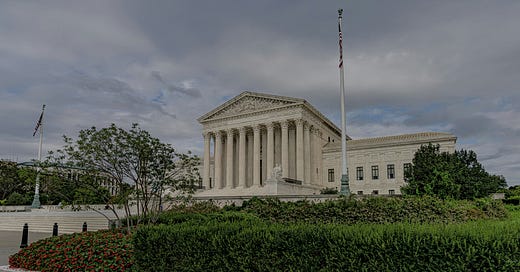WARRANT: Ford seeks relief from the U.S. Supreme Court
James Ford's execution is scheduled for February 13. This afternoon, Ford asked the Court to stay his execution and review the Supreme Court of Florida's ruling denying him relief.
James Ford’s execution is scheduled for 6:00 p.m. on Thursday, February 13, 2025—the first for the State in 2025.
Ahead of his execution, Ford filed a two-count successive motion for postconviction relief in the circuit court. After denying Ford’s request for an evidentiary hearing,1 the circuit court denied Ford’s motion. Ford appealed to the Florida Supreme Court, raising three claims. (More on Ford’s arguments in his Initial Brief here.) He also filed a motion to stay the execution and send the case back to the circuit court, which the Court denied. On Friday, the Court affirmed the circuit court’s denial of Ford’s claims.
This afternoon, Ford filed a petition for a writ of certiorari and application for stay of execution at the U.S. Supreme Court.
Application for Stay of Execution
In the Application, Ford argues that his execution should be stayed pending the Court’s resolution fo his petition for writ of certiorari. He argues that he will indisputably suffer irreparably harm “if his execution is allowed to go forward, and the balance of equities weighs heavily in favor of a stay.”
Petition for a Writ of Certiorari
In his petition for a writ of certiorari, Ford presents two questions:
Full copies of the filings can be accessed on the Court’s website here.
As TFDP previously covered, Justice Thomas is the lead justice for applications related to death warrants from Florida.
TFDP Prior Coverage of the Ford Warrant
My thoughts are with everyone involved in the warrant- and execution-related process.







I really appreciated your article on the complexities surrounding the warrant and the ongoing legal struggles. You did a great job highlighting the significance of legal procedures and the implications they carry for all involved. An interesting angle that isn't often discussed is the potential for "writs of mandamus" to play a crucial role in situations like the one you described. This legal tool allows individuals to compel government officials to perform their duties, which could be particularly relevant if there are delays or refusals in executing warrants like the one mentioned. For example, in cases where procedural hurdles hinder timely justice, a writ of mandamus could potentially expedite the process and bring about a resolution, showcasing how this legal mechanism sometimes acts as a safeguard against inaction. I'm curious if you think that the increasing awareness of such legal remedies could influence how cases similar to the one about the warrant unfold in the future? How do you see the interplay between public interest and the judicial system, especially in relation to the use of writs like mandamus in ensuring accountability? https://mandamus.com